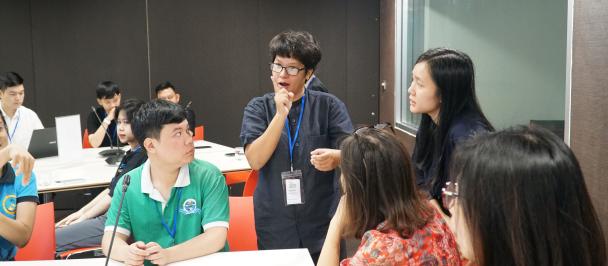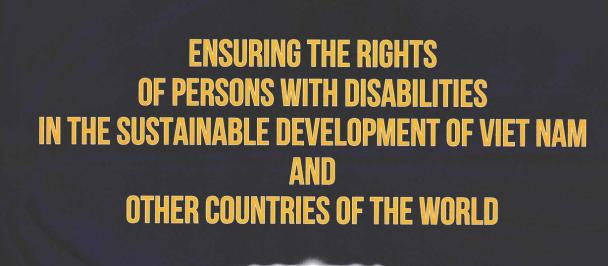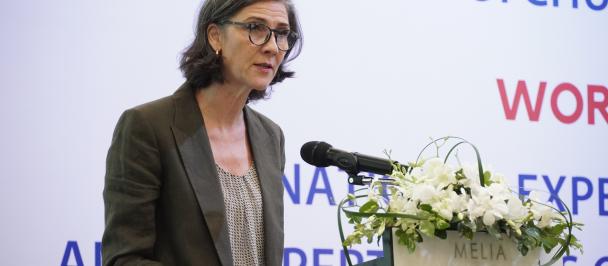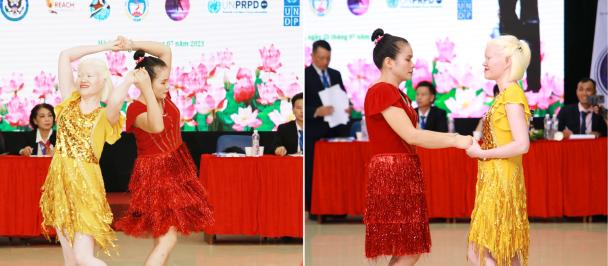Consultation workshop on the draft monitoring and evaluation indicators against the implementation of the UN Conventions for the Rights of Persons with Disabilities (CRPD) in Viet Nam
November 14, 2023
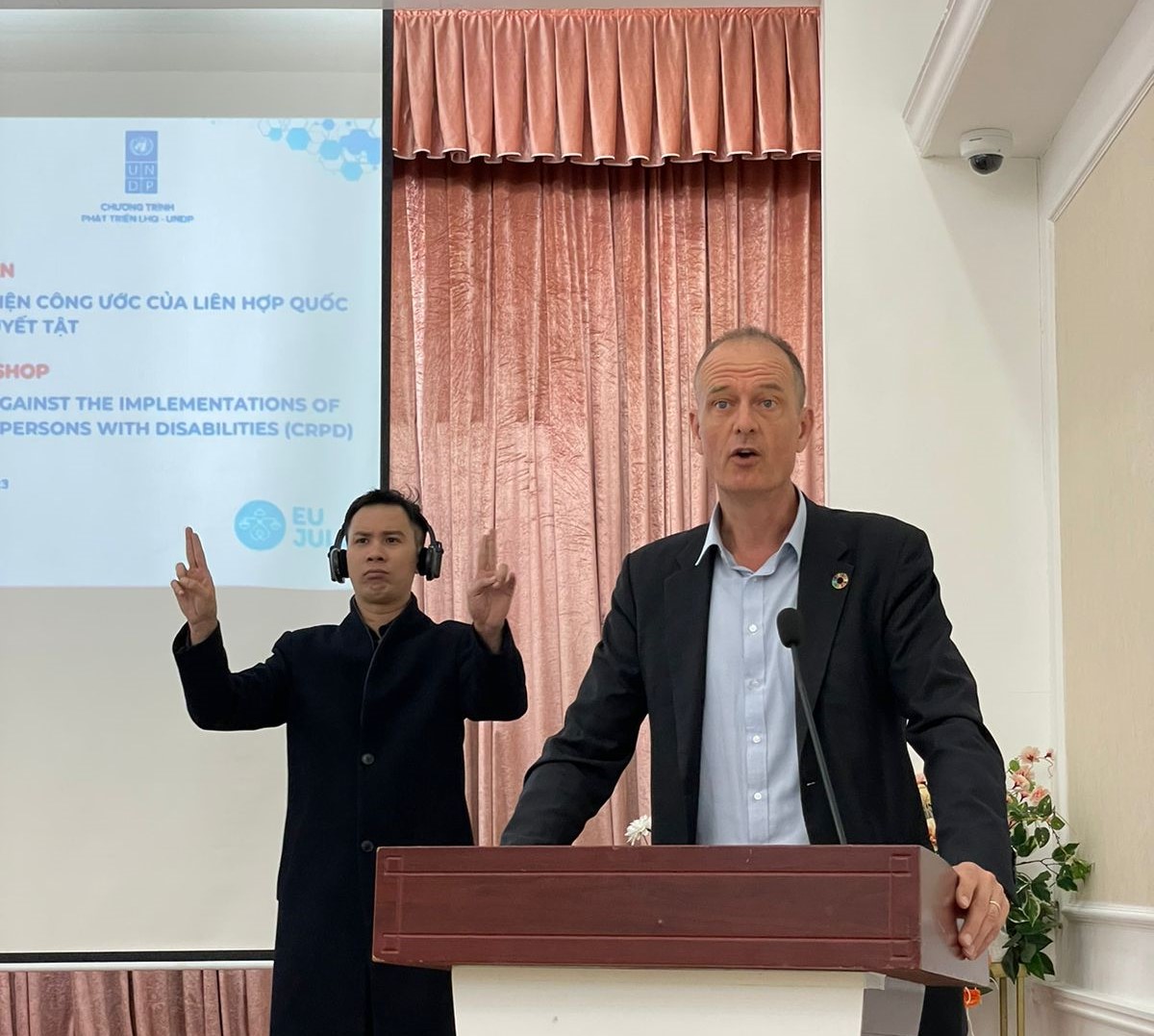
Mr. Patrick Haverman, Deputy Resident Representative, UNDP in Viet Nam
Mr. Nguyen Van Binh, Director General, Legal Department, Ministry of Labor, Invalids and Social Affairs
Mrs. Brenda Candries, Programme manager, EU Delegation to Vietnam
Representatives from the lined Ministries, provincial DOLISA and judicial academies and universities, organizations of persons with disabilities.
Distinguished guests,
Good morning
On behalf of the United Nations Development Programme (UNDP), it is my pleasure to welcome you to this important consultation workshop on the draft monitoring and evaluation indicators against the implementation of the United Nations Convention of the rights of persons with disabilities (CRPD) in Viet Nam. Today’s consultation is co-organized by Ministry of Labor, Invalids and Social Affairs (MOLISA) and UNDP under the EU Justice and Legal Empowerment programme (or EU JULE in short).
The EU JULE programme has been implemented by the Ministry of Justice, together with UNDP and UNICEF and with great involvement of key stakeholders in the justice system, including Ministry of Labor, Invalids and Social Affairs. It is designed to strengthen the rule of law through a more reliable, trusted and accessible justice system with an aim of increasing access to justice for women, children, persons with disabilities, ethnic minorities and the poor. One of the key objectives of the EU JULE is to help Viet Nam improve its legal framework in compliance with the international treaties that Viet Nam is a party, including the CRPD.
Dear colleagues,
I would like to recall the UN convention on the rights of persons with disabilities (in short CRPD) which aims to “promote, protect and ensure the full and equal enjoyment of all human rights and fundamental freedoms by all persons with disabilities, and to promote respect for their inherent dignity. The Convention does not create new and exclusive human rights for persons with disabilities, but in fact, reaffirms their basic human rights based on the Universal Declaration of Human Rights.
Viet Nam ratified the UN Convention on the Rights of Persons with Disabilities (CRPD) in February 2015. Full implementation of the Convention will not help Viet Nam comply with its obligation under the CRPD, but will also assist Viet Nam in further progress toward achieving the Sustainable Development Goals (SDGs),
Dear colleagues,
I would like to congratulate Viet Nam for tremendous efforts in developing and improving the legal framework and taking substantial measures to ensure the realization and protection of the human rights of persons with disabilities in line with the CRPD. Development and effective implementation of the laws and policies of persons with disabilities (PwDs) is one of the most important factors in assisting PwDs to stabilize their lives, integrating into the community to ensure the realization of the rights of PwDs in line with the United Nations Convention of the rights of persons with disabilities (CRDP). As member country since 2015, Viet Nam is required to report the implementation of the Convention periodically. The monitoring and evaluation, reporting against the implementation of CRPD must comply with requirements and obligations of each member country of the Convention, reflecting fully, genuinely, concisely and objectively the implementation of the Convention in Viet Nam.
Dear colleagues,
We will soon be presented with the draft monitoring and evaluation indicators under a study conducted by the experienced consultant. The set of draft indicators are developed to measure the implementation of 33 articles stipulated in the CRPD. The consultation today will contribute to finalization of the monitoring indicators. I would like to suggest some following issues for you to consider during the discussion:
1. The indicators should be feasible, measurable, obtainable. In the short run, due to the capacity and time limit, I would encourage you to prioritize the indicators for implementation by reviewing the lists of issues raised by other member countries and the Committee.
2. It is necessary to have different data collection methods for different type of indicators (outputs, outcomes and structure), which also highlight responsible parties and its frequency.
3. PWDs, organizations of PwDs should be involved in the monitoring and evaluation of the implementation of the CRPD, and data collection process.
4. Formalization and institutionalization of the evaluation and monitoring indicators. Once it is institutionalized, the available data by sectors will be served for the multi- purposes of reporting against the CRDP, and informing the design and development of targeted policies, projects and programmes.
As Mr. Binh mentioned in the opening remarks the draft report today will be finalized and utilized for the mock-up session of defending the national CRPD report in the coming time. Our today discussion will reinforce Vietnam’s efforts to improve the legal framework and policies and its implementation and enforcement to ensure its conformity with the CRDP at the possible highest extent.
With strategic support from the EU and close collaboration with UN agencies, UNDP stands along with the government of Viet Nam and with Ministry of Labor, Invalids and Social Affairs to further promote the implementation of the human rights of persons with disabilities, thereby accelerating the realization of SDGs to ensure No one is left behind.
Finally, I again thank you all for joining the consultation today and look forward to fruitful exchange of ideas. Allow me to wish all present good health, happiness and success for this workshop.
Thank you. Xin Cam on.

 Locations
Locations
